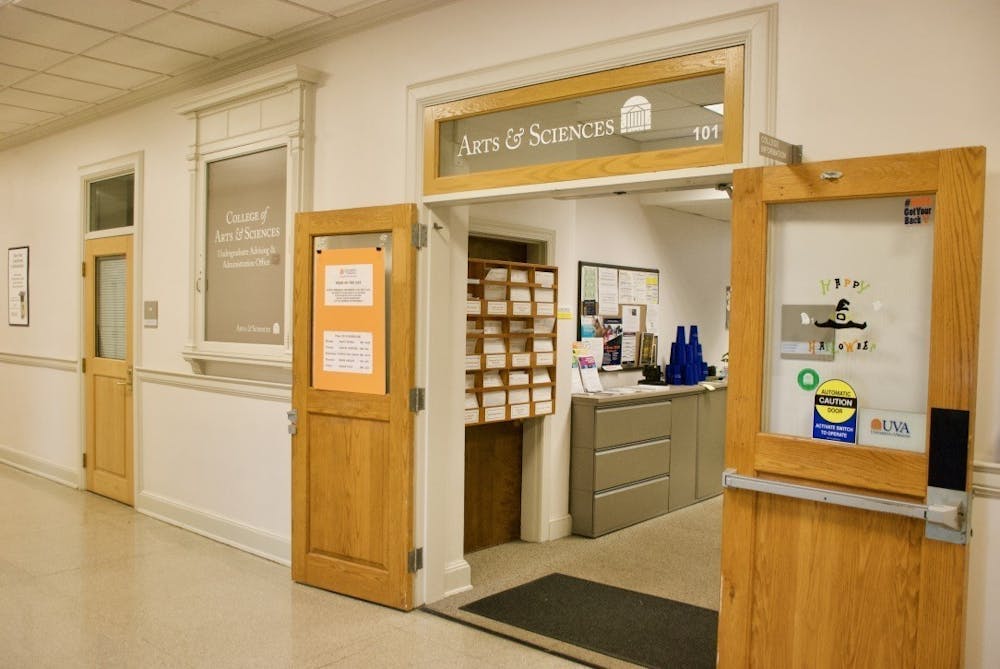The University has applications for student organizations, internships and even residential housing experiences. While overwhelming at times, these extracurricular applications foster unique communities and positions, and there is always something for everyone. But one place where applications don’t belong is in the College, where many majors have a limited capacity, and thus, a strict application process. Many colleges and universities have potential students apply to their major along with the application to the school itself, allowing students to start pursuing their majors and other potential programs in their first year or two. At U.Va., however, many students stress about applying to some of the many programs within the College of Arts and Sciences alone. These application-based majors incite stress and restrict opportunities for students paying tens of thousands of dollars to pursue an education in their interest.
The first year of college should be about exploration and adjusting to a new life, yet scores of students have to worry about planning for future applications, backup plans and which prerequisite courses to commit to. Unless they’re an Echols Scholar, students in the College must complete competency and area requirements, while also managing prerequisites for various potential majors. It’s common for students to undertake prerequisite courses for multiple application-based majors, in addition to managing general education courses and classes for backup majors. For example, the McIntire School of Commerce has five Economics and Commerce courses as prerequisites that students have to take before they can enroll in the program. This leaves little room for academic exploration, since students are often undertaking more than what is manageable. Undergraduates are already pressured to decide on the career they will pursue for the rest of their life, and program applications only increase the pressure and sense of uncertainty.
The University’s extreme amount of applications for clubs, majors or research can create a toxic culture of competitiveness among students. The advantages of being in a smaller, application-based major include more individualized attention, exclusive seminars and prestige. Many students want the benefits of the 26 person Political Philosophy, Policy and Law major — which requires an application — rather than a spot amongst the 700 Government and Foreign Affairs majors within the Department of Politics. With the quality of their education at stake, students experience overwhelming stress brought on by exclusive major applications. Students also fear their career aspirations might be limited by what majors they are accepted into. For example if you weren’t accepted into the McIntire School of Commerce or the Media Studies major, there isn’t another closely related option for those pursuing marketing. While the University typically has a healthy amount of competitiveness that pushes students to do their best, majors that are limited by the amount of students they can admit create a toxic culture.
Colin Bird, Director of the Political Philosophy, Policy and Law program has explained that majors have to limit students through admission processes so they receive enough attention in seminars and thesis writing. Instead of limiting students through an application system, the University should prioritize hiring within the budget so additional faculty can accommodate more students in desirable majors. This would allow for greater student capacity and individualized attention. Most incoming first years are under the impression that they can major in whatever they want, with exceptions like the Frank Batten School of Leadership and Public Policy or McIntire. It comes as a rude awakening to many that you might have to compete for majors that are declarable at other schools. Directing more resources toward majors that are in high demand means more students are able to pursue the education they came to the University for. It is unfair for students to drastically alter their plans because they weren't able to take one of the spots in a specific program. For example, the Global Studies program could only accept around 220 out of 472 interested applicants last year, meaning over 250 students paying tens of thousands in tuition had to default to a backup major that may not even align with their academic and career goals.
Schools and majors bring on more stress than just the application in their second year — students are desperate to get into prestigious extracurriculars and undertake hard classes to prove themselves and to have something to put on their applications. While this culture of competitiveness is beneficial in driving some students to go above and beyond, it can create unnecessary stress for many others that can deter their academic performance. Some students have additional responsibilities — such as working a job — that limit how much time they can spend on developing a competitive application for majors that should be open to all. The University should be about academic exploration and opportunities, not applications and limitations at every turn.
Nicole Chebili is an Opinion Columnist for The Cavalier Daily. She can be reached at opinion@cavalierdaily.com.
The opinions expressed in this column are not necessarily those of The Cavalier Daily. Columns represent the views of the authors alone.







